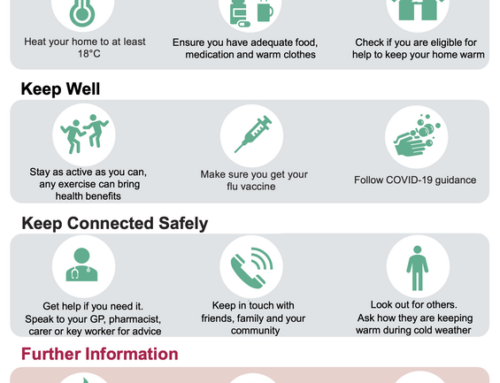Being independent gives us a feeling of purpose and self-worth. Without independence, life can become meaningless. How many times have you heard someone say, ‘I don’t want to be a burden’?
If you’re caring for someone, be that an elderly relative or someone younger with special needs or disabilities, it’s important to encourage them to be as independent as possible.
Living independently at home
For many older people, independence means being able to stay in their own homes. The thought of moving to residential accommodation can be distressing and daunting. Our homes are full of often treasured possessions and more importantly, memories. Having to leave them behind can be a huge wrench and isn’t always necessary.
There are a wide range of care services available to help older people maintain their independence and allow them to remain in the warmth and comfort of their own home. The options include regular visits from care support workers, respite care to allow family carers to have time off, and even 24 hour live-in care.
Your local Social Services department will advise you on the help available and can refer you to professionals such as occupational therapists and social workers. They will also offer advice on any financial assistance that’s available to you.
Companies like Unity Care work with Social Services and Clinical Commissioning Groups, as well as providing healthcare services for people funding their own in-home care. Experienced managers carry out risk assessments and work with other health professionals to develop comprehensive care plans with a focus on promoting independence, dignity and quality of life.
How can you help promote independence?
While your loved one might not be physically or mentally able to do everything they once did, there are still many ways you can help to preserve their independence. Involving the person you are caring for gives them a sense of purpose. They need to have a say what’s happening in their lives and the care they need and want.
It’s important you don’t wrap them in cotton wool and try to do everything for them. However good your intentions, it can result in a loss of self-esteem and in some cases, even result in someone losing the will to live.
If someone can’t physically stand up for long in the kitchen to prepare a meal, there’s no rule that says you can’t sit down to peel potatoes! So look for compromises and encourage your loved one to do what they can for themselves. Putting things used everyday in accessible cupboards prevents too much bending or having to stand on stools or steps. Installing a wet room with a seat can make the difference to someone being able to wash themselves safely and comfortably under the shower instead of putting themselves at risk by climbing in a bath.
This fact sheet from Help the Aged gives information on an extensive range of equipment and clever gadgets which are designed to make life easier for older or disabled people living at home.
Safety is an important consideration when it comes to independent living. Trips and falls are common occurrences, so make sure there are no trailing electrical leads running across the floor. Avoid rugs, clutter on the floor and other trip hazards. Extra handrails can be installed on stairs, in bathrooms, etc. And consider the lighting. While low lighting might be atmospheric, it can also be a cause of accidents. This is particularly important in the kitchen and on stairs.
Helping someone to live independently isn’t just about helping with practical chores like personal care, or cooking, or shopping. Just taking the time to sit down and have a chat over a cup of tea or organising an outing can make all the difference to someone’s quality of life.
Getting older doesn’t have to mean sitting around ‘waiting for God’! There are choices and, with the proper care in place, independence is something that can be enjoyed for longer than you might think possible.




